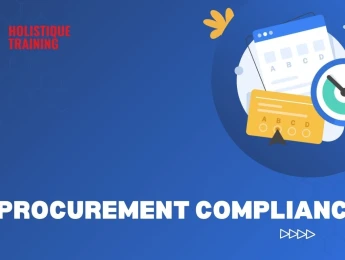Marine transport is incredibly important for a vast amount of organisations that trade goods internationally. To ensure safe practices, shipping laws have been implemented and consistently updated to protect all parties involved.
To trade overseas, it is incredibly important for a business to be fully competent on the relative laws and contracts. Every transaction will require a written contract detailing the products being traded, lay-times of voyage and applicable marine insurance policies. These contracts are established to protect both seller and buyer as this method of trading can come with various risks. Contracts are also crucial to help minimise demurrage claims when lay-can is not met.
Alongside understanding contracts, it is also vital to be competent in international shipping laws. All businesses must follow their local laws, international laws and conventions, and the laws of their destination to ensure all deliveries can be efficiently made.
During this course, you’ll learn:
- Understand the vitality of maritime law.
- Assess the essential elements of maritime law.
- Identify the roles of Charter Parties.
- Explain the importance of maritime insurance within the industry.
- Review the ideal use of maritime insurance.
- Analyse disputes and resolve them efficiently to avoid cost and time wasted.
- Understand the industry's main types of shipping contracts, treaties and international conventions.
- Explore the full responsibilities and rights of parties involved in the shipping trade.
- Manage the risks and liabilities involved with maritime transactions.
This course is designed for anyone responsible for international trading using ships and vessels. It would be most beneficial for:
- Fleet and Ship Managers
- Financial Managers
- Marine Operations Personnel
- Business Owners
- Logistics Analysts
- Development Managers
- Voyage Analysts
This course uses a variety of adult learning styles to aid full understanding and comprehension. Participants will review examples of various established contracts to highlight key features.
They will partake in a range of learning methods, including presentations, video materials, practical exercises and group discussions to ensure they can develop a complete understanding of the taught content. They will be supplied with all the necessary equipment to carry out the given learning activities, and can work in groups to create their own shipping contracts in relation to their specific roles.
Day 5 of each course is reserved for a Q&A session, which may occur off-site. For 10-day courses, this also applies to day 10
Section 1: Introduction to Maritime Law
- The legal framework of maritime law.
- International law and conventions in relation to law of the sea.
- Reviewing the UN Convention on Contracts for the international sale of goods (CISG).
- There are various contracts for shipbuilding, repair, sale, and purchase.
- The concepts and principles of each ship contract.
- Determining and assigning ownership and registration of vessels.
Section 2: International Law
- Describing the purpose of Carriage of Goods by Sea.
- The various types of Charter parties – time, voyage, demise and lump sum.
- Explaining the functions, legal features, limitations and the operation of contractual freedoms of each type of charter party.
- The principles of Bill of Lading and how it is utilised.
- Analysing the different rulesets relating to Carriage of Goods by Sea – Hague, Hague-Visby and Hamburg and Rotterdam rules.
- Understanding the standardisation of contracts including BIMCO.
Section 3: Insurance and Contracts of Sale
- Key concepts and principles of maritime insurance.
- The different types of insurance and what contracts they are most suitable for.
- How insurance benefits all parties involved.
- The process of making a sale, including international trade, risks of exchanging goods, bank involvement and documentation.
- Balancing insurable interest and proximate cause.
- Common insurance policies, cargo clauses and contracts of indemnity and warranties.
Section 4: Voyage Charter Party
- The types of lay-time including starting lay-time and notice of readiness (NOR).
- How to calculate lay-time.
- Potential situations for suspending or stopping lay-time.
- Cancelling a charter party when necessary and lay-can.
- Calculating demurrage and despatch costs when needed.
Section 5: Enforcement of Maritime Claims
- Causes of vessel arrest and sister ship arrest where international instruments are applicable.
- The utilisation of freezing orders (Mareva Injunction).
- Exercising jurisdiction.
- Understanding the process of ship arrest.
Upon successful completion of this training course, delegates will be awarded a Holistique Training Certificate of Completion. For those who attend and complete the online training course, a Holistique Training e-Certificate will be provided.
Holistique Training Certificates are accredited by the British Assessment Council (BAC) and The CPD Certification Service (CPD), and are certified under ISO 9001, ISO 21001, and ISO 29993 standards.
CPD credits for this course are granted by our Certificates and will be reflected on the Holistique Training Certificate of Completion. In accordance with the standards of The CPD Certification Service, one CPD credit is awarded per hour of course attendance. A maximum of 50 CPD credits can be claimed for any single course we currently offer.
- Course Code PO5-108
- Course Format Online, Classroom,
- Duration 5 days














